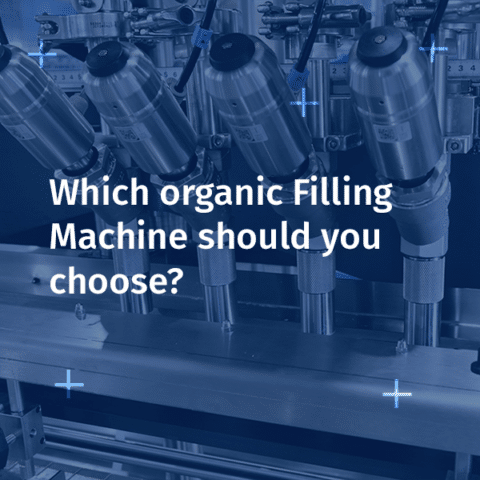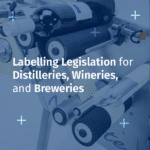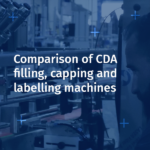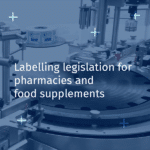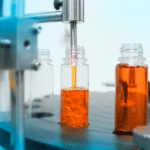The organic products market is constantly growing: oils, honey, juices, syrups, sauces, natural cosmetics… For producers, packaging is a key step to guarantee quality, traceability, and consumer appeal. Choosing the right filling machine is therefore essential, and this choice must be made in coherence with the following stages: capping (screw cappers, sealing machines) and labelling.
The specificities of organic product packaging
Organic products require:
- Flawless hygiene: machines that are easy to clean and made from materials compliant with food industry standards (where necessary).
- Precise dosing: to avoid waste and ensure declared volumes are respected.
- Adaptability to containers: glass bottles, metal cans, recyclable plastic jars, etc., ranging from small to large volumes.
- Careful presentation: legible and well-positioned labels, and airtight caps or closures.
The different filling technologies
The choice of filling machine depends on the product’s texture:
- Piston fillers: designed for stringy, thick, or viscous products such as honey, fruit purées, or organic cosmetic creams. They ensure homogeneous filling without bubbles or product loss. Discover the K-Dense, a robust and efficient automatic filler for dense textures.
- Peristaltic fillers: particularly suited to small volumes and sensitive products such as essential oils or syrups. This technology preserves product quality while allowing quick product changeovers. Ideal for artisan ranges or high value-added productions.
These machines ensure precise, repeatable filling, guaranteeing compliance with regulations.
Capping: screw cappers and sealing machines
Once filled, the container must be hermetically closed to preserve product quality.
- Automatic screw cappers are perfect for glass or plastic bottles with screw caps (oils, juices, cosmetics).
- Sealing machines are suited to jars or bottles requiring a cap or crimp seal.
Labelling for organic containers
Automatic labellers ensure the precise application of front labels, back labels, and additional tamper-proof or safety labels. For organic products, where legibility of legal information is often regulated (ingredients, batch number, AB / EU organic logos), reliable labelling reassures the consumer.
- Cylindrical bottles: for fast and consistent application, the Solo 1500 automatic labeller is ideal. It applies adhesive labels to a wide range of containers: bottles, jars, buckets, cans, tins, vials, etc.
- Square jars or flat bottles: to avoid wrinkles and ensure a professional finish, the Ninette Flat semi-automatic labeller applies labels precisely on varied formats: flat bottles, square jars, rectangular containers, cartons, cans, or shower gel bottles.
- Small cosmetic containers: CDA also offers dedicated solutions for labelling “mini formats”, suited to essential oil bottles, samples, or small organic cosmetic jars.
Monoblocks: the complete solution for organic packaging
For producers wishing to optimise space and automate the entire packaging process, monoblocks are an excellent solution. They combine filling, capping, and labelling in a single compact machine.
- Space saving.
- Increased productivity.
- Versatility: adaptable to several container and cap formats.
The choice of a dosing machine for an organic product depends on:
- the nature of the product (liquid, viscous, sensitive),
- the shape and material of the container,
- the desired level of automation (semi-automatic or automatic).
Whether it’s a volumetric filler, a screw capper, a labeller, or a monobloc integrating all these steps, CDA offers solutions adapted to organic producers, from small artisan workshops to industrial packaging lines.
FAQ
What are the specificities of dosing organic products?
Organic products require precise and hygienic dosing to preserve their quality. Machines must be easy to clean and made from materials compliant with the relevant standards for packaged products.
Which dosing machine is best suited for organic liquids?
For organic liquids (juices, oils, syrups), volumetric or peristaltic fillers ensure accurate filling and minimise product loss. They are suitable for both artisan and industrial production.
Are there dosing solutions for viscous organic products?
Yes. For thick products (creams, honey, purées), piston fillers are recommended. They handle dense textures while ensuring homogeneous filling.
How do you choose a dosing machine according to production rate?
The choice depends on production volume: a semi-automatic filler is ideal for small-scale organic production, while an automatic filler integrated into a packaging line is suitable for higher industrial throughputs.
